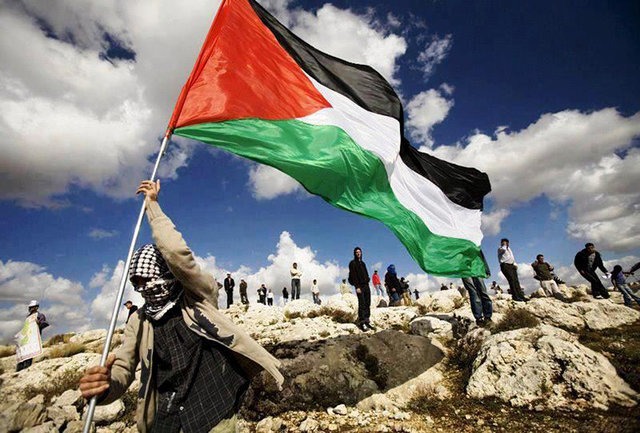Having spoken to Strategic Council Online, Mehdi Shakibaei explained as follows: “There used to be a majority of people living in Palestine hundred years ago who enjoyed to have a State, an identity and a land of their own. In 1948 they suddenly lost all three. In fact, all these legitimate rights were taken from them.”
Answering to the question that if the Palestinian nation’s resistance could have restituted the rights of Palestinians or not? Shakibae explained: “The history of the occupied Palestine within the past 7 decades could be divided into two periods; first, from 1948 to 1978, that means from the beginning of the occupation of Palestine until the year when Egyptian president signed a compromise treaty with the Zionist regime, the period during which, there was no achievement because the Palestinian nation struggles led constantly by Arab states. Palestinians were unable to struggle even inside their own borders. Until 1978 fighters who made struggle for restitution of Palestinian rights were stationed outside the Palestine borders in countries like Lebanon, Tunisia and Kuwait.
He continued: “the movements concentrated in Lebanon, supported especially by Arab states, and took anti-Zionist measures. The struggles of Palestinian nation from 1948 to 1978 were within a limited area. As it was limited, Palestinians were unable to achieve a breakthrough in line with the restitution of their legitimate rights. He further added that from 1978, i.e. the signing of peace treaty between the Zionist regime and Egypt, the conditions for Palestinians struggles changed. Six months later, the Islamic Revolution in Iran came to fruition. Within the period, the descending struggles of Palestinians changed the course and turned out an ascending direction. Thus, the struggles of Palestinian combatants took a new form. The expert added that” within this stage of struggles, Palestinians managed to cover all of their three legitimate rights. Shakibaei said inclusion of the new element of Islamism, i.e. Islamic ideology to the struggles of Palestinians against the Zionist regime which was copied from the struggles of the Islamic Revolution in Iran, led to an uprising inside Palestinian lands, that later called Intifada.
The expert pointed out that until then, world public opinion did not think that large population of Palestinians were living in Palestine, because they usually thought Palestinians were a minority who lived in a state called Israel with a majority of Israeli population there.
Shakibaei underscored that Palestinians were inspired by the Islamic Revolution in Iran, followed by the gradual formation of resistant cells that was renamed a few years later as main intifada.
He added:” in pursuant of the main intifada of 1987, Palestinians managed to prove the world that a Palestinian identity is also living there who forms the majority of population, not minority.”
He continued:” Although the first intifada of Palestinians was suppressed later by Zionists and Americans through signing of Oslo Accord, but immediately in 2000 a new intifada was formed called Al-Aqssa in Palestine. The latter intifada could make the Zionist regime and her alliances who did not conceive any concession for Palestinians, admit that nearly 6 million of Palestinians couldn’t be neglected. Instead, they should have a state of their own to organize their security, economic, political and social status.
Shakibaei stressed that:” Although the Islamic Republic of Iran does not recognize the establishment of the Palestinian State, along with and side by side the usurper state of Israel, and underscores the establishment of a historic state in historic Palestine, from the Sea to the River. But the issue of having a State as their main demand is considered a great achievement of Palestinians in the second intifada. Thus the Resistance could achieve two of the three legitimate rights of Palestinians.
He also believes in the restitution of their third right, i.e. regaining of the Palestinian land as such:” In 2005, the Palestinian Resistance could liberate Gaza as a part of the occupied land of Palestine after nearly 60 years. Nowadays, it is again the limelight of Jihad and resistance in Gaza strip.”
Shakibaei underscores that:” The resistance groups could, thus, secure the legitimate rights of Palestine nation. Although the restitution of rights has not taken place completely but could bring breakthroughs within this short time.”
The expert further continued that after the assassination of General Soleimani, Iran’s support to the resistance groups has been increased. He explained “the strategy of the Islamic Republic of Iran to support Palestine is mainly focused on the liberation of Holy Quds. The Islamic Republic of Iran believes that the liberation of Holy Quds is coupled with the liberation of Palestine land.
He emphasized that the strategy is not individual-based. That’s why even with the demise of our great hero, Haj Ghassem Soleimani, the rout has not been blocked.
Having ultimately stressed that:” we know that Quds corps is not individual-based”, he continued: “Although, the corps lost one of its bravest commanders, yet it continues its path to materialize Al Quds and the Palestine great ideals. We happen to witness quicker trend of the movement with his digne successor, i.e. General Ghaani.” Shakibaei stressed that “along with the support of the resistance that His Eminence the Leader has called as a solution to Palestine issue, there is another solution which was again correctly mentioned by him, i.e. holding a referendum. The Resistance is, indeed, a leverage to materialize the solution proposed by the Islamic Republic of Iran which is the very same referendum.










0 Comments